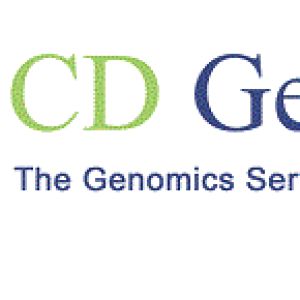The Relationship Between the Gut Microbiome and Drugs Is Greater Than We ThoughtPosted by kiko on June 27th, 2022 Gut microbes are considered "virtual organs" that influence host health and are involved in disease research. The human gut microbiota has a large gene pool, encoding approximately 100-150 times more genes than the human genome, and contains a rich resource of enzymes with the ability to metabolize drugs. The diversity of gut bacteria also affects the mental health of the host. Microbiomes from depressed patients were transplanted into rats, which developed similar mental health problems. Some bacteria can also synthesize neurotransmitters, such as dopamine and acetylcholine, which may affect neural activity in the brain. Pharmacogenetics and pharmacogenomics have now expanded from purely human genetic studies to the study of potential mechanisms of human gut microbes on drug efficacy. Bidirectional Effects Through years of research, it has been revealed that intestinal flora can synthesize a range of enzymes involved in drug metabolism, including oxidases and hydrogenases. These enzymes can activate, deactivate or reactivate drugs through structural changes in their composition. The direct effect of microorganisms on drug response is that the intestinal flora affects the bioavailability of a drug by altering its chemical structure. In addition, drug intake also affects the composition and function of intestinal microbes. Drugs may affect host metabolism or clinical efficacy by positively and negatively modulating the gut microbiome. Not only antibiotics medicines, but also other commonly used drugs have been shown to affect the gut microbiome in population-based studies. Approaches to the Gut Microbiome There has always existed a bidirectional influence between gut microbes and drugs and numerous scientists are still trying to identify the molecular mechanisms involved. Our understanding of gut microbes depends to a large extent on the development of analytical techniques. From the earliest use of isolated culture methods to the current holistic taxonomic assessment of microorganisms based on various sequencing technologies, we have gained a broad understanding of the composition and function of the human microbiome, for example, the development of 16S/18S/ITS sequencing technology. Whole genome sequencing or metagenomics sequencing (MGS) has emerged as a powerful approach to studying the microbiome. MGS can identify not only bacteria and fungi but also viruses and protozoa, allowing focused analysis of important microbe species and predicted biological pathways. However, as with all sequencing-based methods, MGS results are very dependent on the method of DNA isolation from fecal samples, which is a major source of technical variation in microbiome results. In combination with other omics approaches, such as metatranscriptomics, metabolomics and metaproteomics, they are also increasingly used to gain a comprehensive understanding of the intestinal ecosystem. These analytical approaches allow us to probe not only the representative human gut microbial structure and metabolic activity, but also to systematically analyze microbial-drug interactions by identifying related microbial metabolic pathways. A Potential New Frontier for Individualized and Precision Medicine The gut microbiome could become an integral part of the future personalized medicine movement. First, the gut microbiome is considered to be a response biomarker. In general, normal individuals tend to have a diverse gut microbiome, whereas individuals with disease and drug intake have a relatively reduced variety of gut microbes. The efficacy and toxicity of drugs in vivo can be predicted by measuring the composition and number of the gut microbiome and the relative abundance of its metabolites. In addition, gut flora may be a new strategy to improve the prognosis of allogeneic hematopoietic cell transplantation in the future. There does not appear to be a common mechanism for how bacteria and drugs interact. Given the complex relationship between drugs and the microbiome, precision medicine and drug development should expand the scope of gene sequencing to predict the response of host gut microbes to therapy. Like it? Share it!More by this author |


